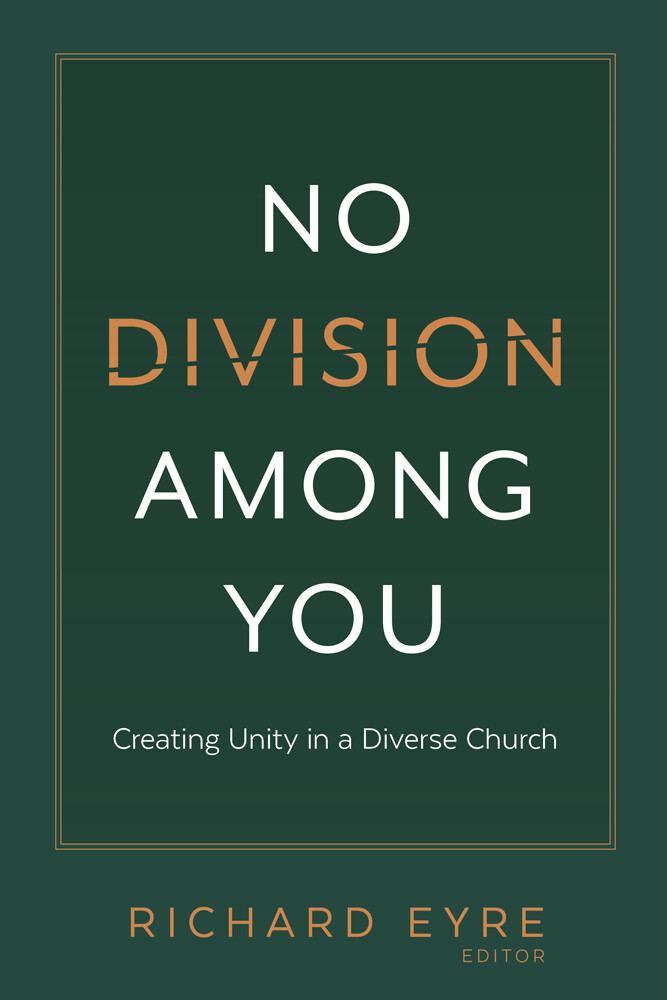Putting people first solves everything. Over my 20-year career in marketing, that has been one of the most important themes I’ve learned and one that I’ll never forget. As I’ve worked for HP, Walmart, Microsoft, Xbox, and Adobe, I’ve found that putting people first is essential—whether within the company or for the customers we serve. And that theme has shaped not only my work but myself personally and the way I live the gospel.
There is a beautiful connection between the gospel of Jesus Christ and putting people first. Every one of the Savior’s encounters with others was driven by caring for the one. He taught, “What man of you, having an hundred sheep, if he lose one of them, doth not leave the ninety and nine in the wilderness, and go after that which is lost, until he find it?” (Luke 15:4). This scripture reminds us that God always puts His children first—no matter how lost they might be—so He can bring them safely back home.
But how do we prioritize our sisters and brothers the way Christ does? It isn’t always easy, and some of us might even feel afraid to put people first if social interactions don’t come naturally to us. However, as we learn to do so, we can establish genuine connections with others and step closer to the Savior’s command “that ye love one another; as I have loved you” (John 13:34). With that in mind, here are three principles from my career in marketing that have brought joy to my life because they’ve helped me put people first. I hope that, as more people apply them, we can draw a little closer to the Savior while we help one another return safely home.
1. Be Curious about People

One of the foundational principles in marketing is knowing your customer. Companies often have terms for this, like “customer-focused,” “customer-centric,” or “customer-first.” Simply put, these terms mean that the customer is most important.
To help customers feel how important they are, you need to be deeply curious about them. To me, this means taking the time to understand them in a deeper, more intimate way; you care about the challenges they’re facing and do everything you can to help them find resolutions.
For example, when I worked for Walmart, I provided marketing for the entertainment department, which included video games, movies, music, and books. Every year we’d conduct research with our consumers to learn how we could better serve them through the products we sold. One thing we learned is that moms, our target audience, had a difficult time bringing their families together without a reason, and they needed easy solutions to help them do so. This insight helped us create what we called “Family Night,” which meant we merchandised a movie in the grocery section next to a take-and-bake pizza so these moms could get everything they needed for a family get-together in one place.
Curiosity is also important in my personal interactions at work. Not long ago, I was asked to be a guest lecturer at Brigham Young University. There I met another guest lecturer and learned about her professional background as well as what it’s like for her to provide for her family. During our conversation, we discovered that we are both converts to the Church, and we made a lasting connection that never would have happened if we had both just given our presentations and then gone our separate ways.
Meeting my friend has shown me that being curious can lead to spiritual connections in our lives. Jesus Christ was a master at curiosity—He never let an opportunity pass where He could connect with an individual and show that He knew them intimately.
One of my favorite instances of Christ demonstrating curiosity is when He met the Samaritan woman at the well. Jesus talked to the woman first by simply asking for a drink. The woman was surprised at His request—and for good reason. She exclaimed, “How is it that thou, being a Jew, askest drink of me, which am a woman of Samaria? for the Jews have no dealings with the Samaritans” (John 4:9). Her question was valid given the centuries of hate and confrontations that had existed between the Jews and the Samaritans.
Her pointed question led to a conversation where the Lord showed that He knew the details of her personal life. Referring to the water in the well, He taught, “Whosoever drinketh of this water shall thirst again: But whosoever drinketh of the water that I shall give him shall never thirst; but the water that I shall give him shall be in him a well of water springing up into everlasting life” (John 4:13–14).
By simply approaching this woman and taking time to be with her, Christ showed that He understood her deeply, which in turn sparked her curiosity and led her to become a powerful and enthusiastic witness of the Messiah, helping to soften the hearts of others to believe as well (see John 4:39).
Jesus Christ didn’t make assumptions based on labels or appearances—instead, He focused on how each person is a child of God with great potential. His desire to genuinely connect with the individual is a powerful reminder of how putting people first can bring about meaningful connections that lead to much more.
2. Find Common Ground
Throughout my career, I’ve found that one of the best ways to put people first is by finding common ground with them. So whenever I join a company, I spend the first three to six months meeting with my peers and team members with a focus on understanding what they do, how they define success, and how we can best work together. That information helps me know how to interact with them, what’s important to them, what their preferred working style is, and, ultimately, how we can have success together. This doesn’t mean we always agree, but it does lay a foundation for us to have open and effective communication with each other moving forward.
Establishing common ground is just as important in our daily lives: it gives a jumping-off point for genuine connection and shows others that you care. For me, this means asking people simple questions like where they grew up, what they like to do for fun, if they have any pets, or if they’re a foodie. It’s amazing how forming a connection so small can create such a strong foundation to build on.
Finding common ground can also be a wonderful way to share the gospel of Jesus Christ. One of my favorite examples of this is in the Book of Mormon when Ammon shares the gospel with King Lamoni. In their discussion, Ammon asks King Lamoni, “Believest thou that there is a God?” The king replies that he doesn’t know what that means. Ammon then clarifies, “Believest thou that there is a Great Spirit?” King Lamoni responds that he does, and Ammon then boldly states: “This is God” (Alma 18:24–28).
Two things stand out to me about this exchange: First, Ammon asked questions. Second, he built on what the king already knew—Ammon was likely familiar with the king’s religious traditions, allowing him to share information in a way that was easy for him to understand. By establishing common ground, Ammon created a foundation to have an open and sincere conversation with King Lamoni about God and the plan of redemption. This powerful, compassionate conversation created space in King Lamoni’s heart and mind to the point where he “believed all [Ammon’s] words” (Alma 18:40).
From Ammon’s example, we learn that building from even the smallest of common ground can build trust and unity with one another. And in this polarizing world, trust and unity are more important than ever to help us progress along our path in life.

3. Embrace People
There is no better way to show people that they come first than by being inclusive. During my time at Adobe, I was privileged to build and lead a team that included colleagues from Argentina, Nigeria, Switzerland, and the US. They were of different backgrounds and sexual orientations, and, as I worked with them closely, I witnessed how critical it was that everyone felt included regardless of their origin or belief.
To drive a deeper sense of inclusion among my teammates, I invited each of them to create a culture where we could speak openly and constructively without offense. This helped the team thrive—they knew they could bring up hard issues both with me and their colleagues in a direct yet respectful way. An open environment also encouraged them to be themselves, do their best work, and feel successful. This group has since become close friends, highlighting to me how an inclusive culture brings mutual respect.
Inclusion is a value we should always strive for. Our Savior, Jesus Christ, exemplified this perfectly: He interacted with everyone no matter their heritage or perceived “sin,” showing that everyone deserves kindness and compassion. Today, President M. Russell Ballard taught that inclusion is part of our core beliefs. He said: “That is our doctrine—a doctrine of inclusion. That is what we believe. That is what we have been taught. Of all people on this earth, we should be the most loving, the kindest, and the most tolerant because of that doctrine.”
The doctrine of inclusion isn’t something we follow simply when it’s convenient—it’s a way to keep the great commandment to “love thy neighbor” (Matthew 22:39). And at baptism, we covenant to both keep the commandments and follow the Savior. To me, it’s powerful to think that when we keep that commandment and put our neighbor first, we become more like Him as we love and serve others the way He would.
We Come First
I’ve been blessed in my professional life to meet, work with, and become friends with people from different walks of life who have shown a Christlike love that has forever changed me. I’ve also seen the hand of the Lord create opportunities for me to share the gospel of Jesus Christ as I strive to live with kindness, respect, curiosity, and inclusivity, which I’m sure He’s done for you.
I take comfort in the fact that while we are still learning to love and serve each other, our heavenly parents and our Savior, Jesus Christ, are perfect at it. They see us for who we really are, and they know how to truly help us. I believe we will be taken care of—because, with them, we always come first.



